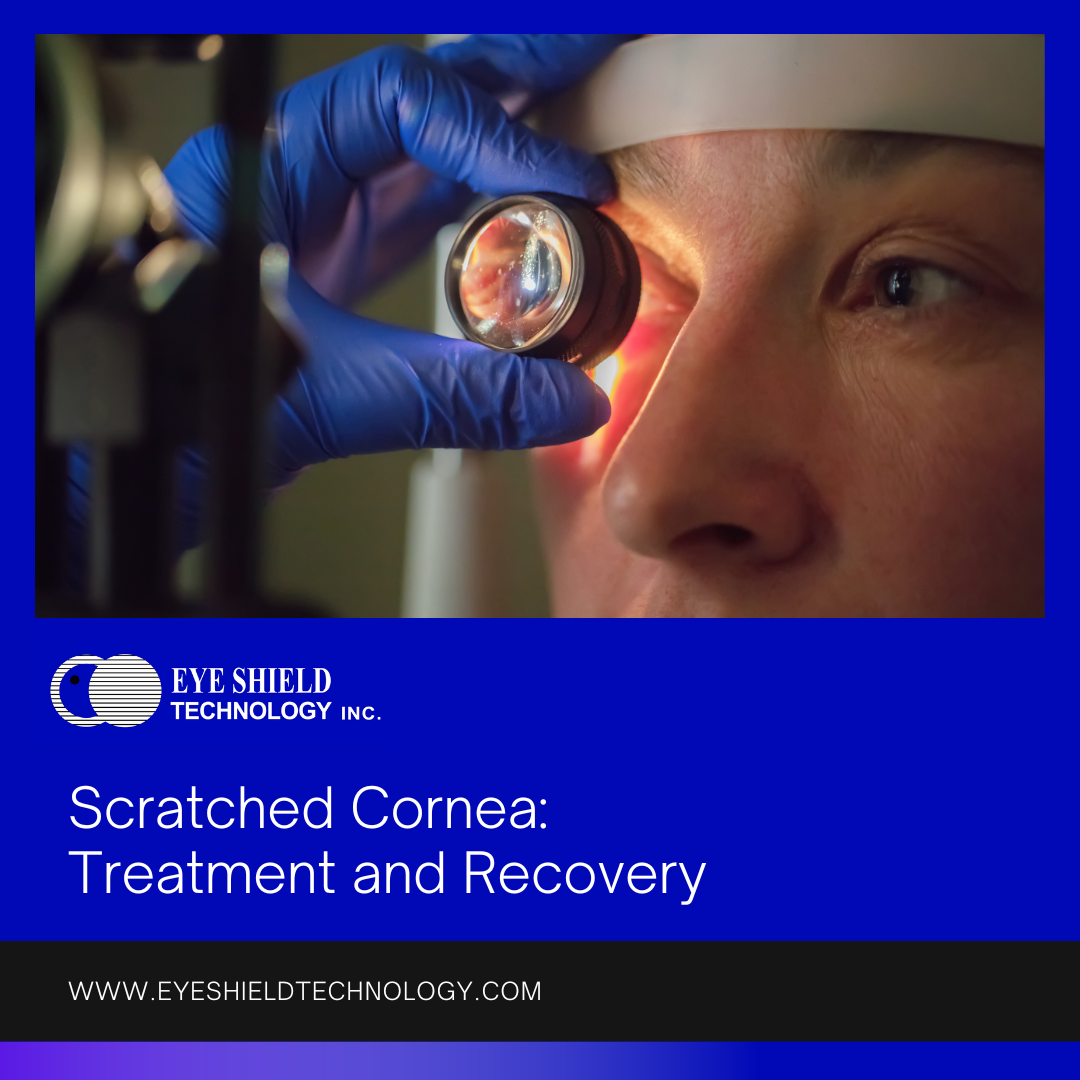Scratched Cornea: Treatment and Recovery

Any sort of injury to the eye can be a cause of concern, and should be tended to promptly. The human eye is very delicate, made up by thin tissue that can easily be damaged. Eye injuries can be quite painful, and in more serious cases, lead to sight-threatening complications. A scratched cornea is one of the more common injuries, and can happen in an instant.
The Cornea
The cornea of the eye is an avascular tissue that performs as a barrier to protect it from infection. This layer keeps out germs and particles, preventing contamination. As the eye’s outermost lens, it also controls light entry and filters out harmful ultraviolet rays from the sun. It plays a major role in your vision, such as helping the eye to focus. The cornea manipulates and refracts light so you can see things up close or far away. Though the cornea is considered the outermost layer of the eye, the cornea itself consists of 5 layers. These layers are known as the epithelium, Bowman’s layer, stroma, Descemet’s membrane, and endothelium.
Treatment
A scratched cornea occurs when you’ve scratched your eye. This can happen by having it poked, contact with dirt or sand, exposure to chemicals, or overworn contact lenses. Closing your eyes won’t make the pain go away, and any entry of light will only make it worse. Treatment will require you to flush the eye out with saline solution to help remove any particles that got stuck in the eye. Avoid rubbing the eye to prevent the damage from worsening. A doctor might prescribe antibiotic eye drops to help prevent infection and to encourage proper healing. Wearing an eye patch or protective eye shield can help keep out light and will protect it from any further damage.A scratched cornea isn’t typically a serious injury, but should be aided to correctly for a speedy recovery. For prevention, be sure to wear protective eyewear and practice general hygiene when switching out contacts. Eye protection is a priority of ours to help patients protect their improved vision. To learn more about protective eye-gear, contact us today or visit our website!
